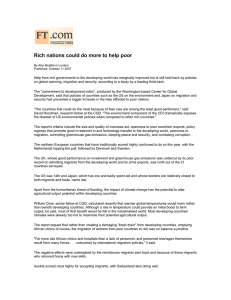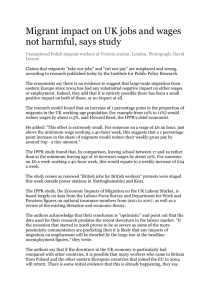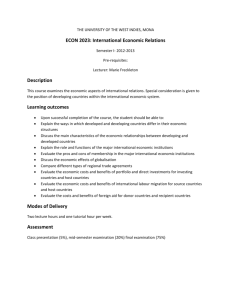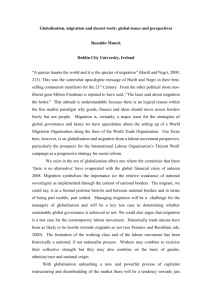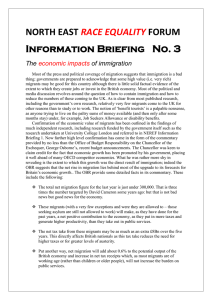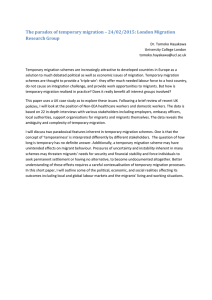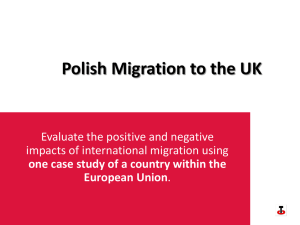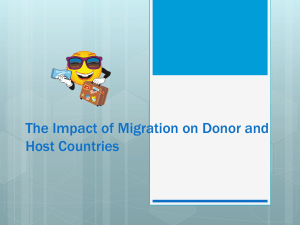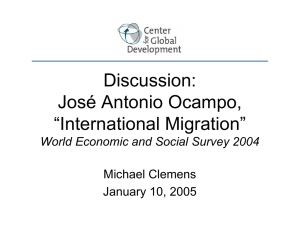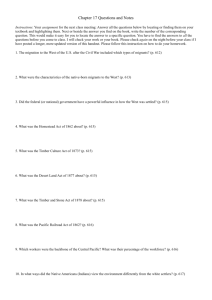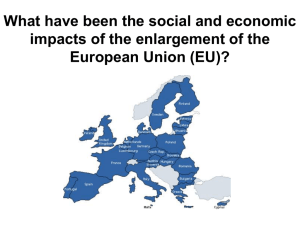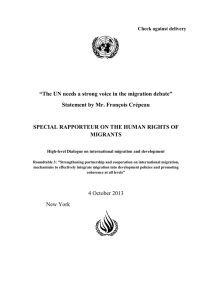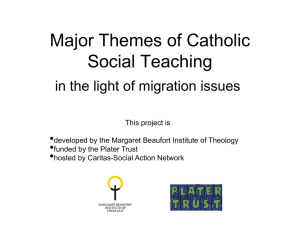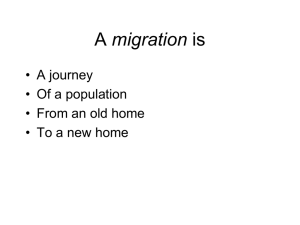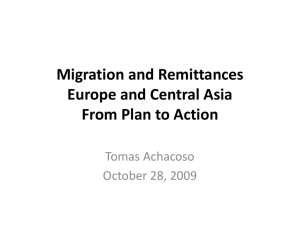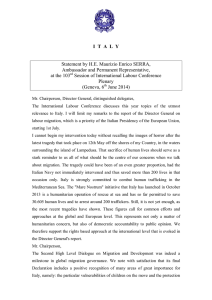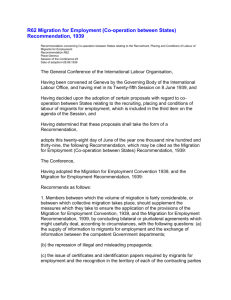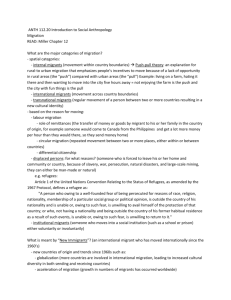Asymmetric Governance, Labour Standards, and
advertisement
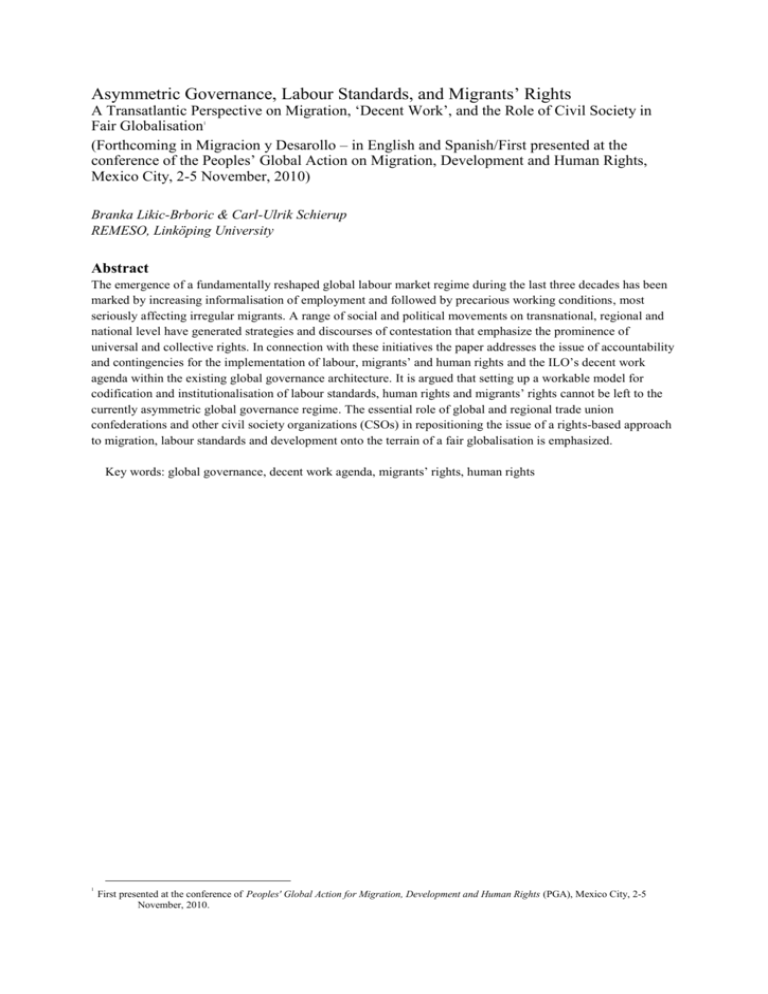
Asymmetric Governance, Labour Standards, and Migrants’ Rights A Transatlantic Perspective on Migration, ‘Decent Work’, and the Role of Civil Society in Fair Globalisation (Forthcoming in Migracion y Desarollo – in English and Spanish/First presented at the conference of the Peoples’ Global Action on Migration, Development and Human Rights, Mexico City, 2-5 November, 2010) 1 Branka Likic-Brboric & Carl-Ulrik Schierup REMESO, Linköping University Abstract The emergence of a fundamentally reshaped global labour market regime during the last three decades has been marked by increasing informalisation of employment and followed by precarious working conditions, most seriously affecting irregular migrants. A range of social and political movements on transnational, regional and national level have generated strategies and discourses of contestation that emphasize the prominence of universal and collective rights. In connection with these initiatives the paper addresses the issue of accountability and contingencies for the implementation of labour, migrants’ and human rights and the ILO’s decent work agenda within the existing global governance architecture. It is argued that setting up a workable model for codification and institutionalisation of labour standards, human rights and migrants’ rights cannot be left to the currently asymmetric global governance regime. The essential role of global and regional trade union confederations and other civil society organizations (CSOs) in repositioning the issue of a rights-based approach to migration, labour standards and development onto the terrain of a fair globalisation is emphasized. Key words: global governance, decent work agenda, migrants’ rights, human rights 1 First presented at the conference of Peoples' Global Action for Migration, Development and Human Rights (PGA), Mexico City, 2-5 November, 2010.
